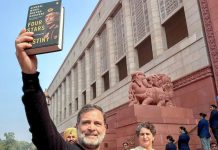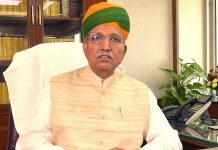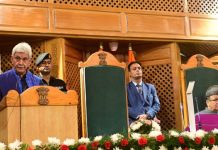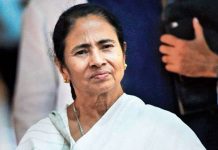
For a leader who once thrived on public engagement, this quiet phase of Aam Aadmi Party leader Arvind Kejriwal is being seen as a tactical pause to rebuild credibility and momentum.
Arvind Kejriwal’s silence after the Delhi Assembly polls defeat is likely fuelled by a mix of necessity and strategy. Whether he is licking his wounds, dodging the Bharatiya Janata Party’s impending probes, or plotting AAP’s next chapter, this retreat marks a stark contrast to his typically vocal persona, or a sign that his political confidence is severely shaken
On February 8, 2025, the Arvind-Kejriwal-led AAP, suffered a massive defeat in the Delhi elections, ending a decade-long reign in the national capital. The BJP stormed back to power after 27 years, securing 48 of the 70 seats, while AAP’s tally plummeted to 22. Kejriwal himself lost his New Delhi constituency, a seat he had held since 2013, to BJP’s Parvesh Verma by a margin of 4,089 votes. Since this electoral setback, the once-vocal AAP leader has largely retreated from the public eye, prompting speculation about why Kejriwal has fallen silent.
For over a decade, Kejriwal has been the fulcrum of AAP, driving its campaigns, governance, and narrative. The relentless clashes with the Narendra Modi-led Central government, legal battles, and the pressure of maintaining his “clean politics” image may have taken a toll.
His daily pressers and bold promises during the 2025 campaign, such as accusing the BJP of poisoning the Yamuna, failed to sway voters and may have alienated them instead. It seems that the former Delhi CM has understood the public’s fatigue with his confrontational style, suggesting he might be stepping back to reassess how to reconnect with an electorate that once adored him, sources said.
Moreover, the silence is also being seen as a period of introspection following a defeat that has been described as a personal and organizational blow.

The rise of AAP in the national capital was built on Kejriwal’s image as an anti-corruption crusader and a champion of the “aam aadmi” (common man). However, the 2025 loss, coupled with his defeat, has shattered that aura of invincibility.
Sources stated that this retreat from the spotlight could be a deliberate move to assess what went wrong—be it his governance record, campaign strategy, or tarnished public image.
Another possible reason for Kejriwal’s low profile, ever since the defeat, is the need to regroup amid the fallout from corruption allegations and governance critiques that plagued AAP.
The quiet phase is also being seen as an attempt at repositioning AAP. The party still commands a respectable 43.57% vote share in Delhi and retains power in Punjab. However, the loss of Delhi—AAP’s political heartland—raises questions about its national ambitions and internal cohesion. Sources stated that Kejriwal may now focus on strengthening the party’s grassroots presence.
As AAP navigates uncharted waters as the primary opposition party in Delhi, the duration and outcome of Kejriwal’s silence will determine whether he can reclaim his relevance in India’s fiercely competitive political landscape.












